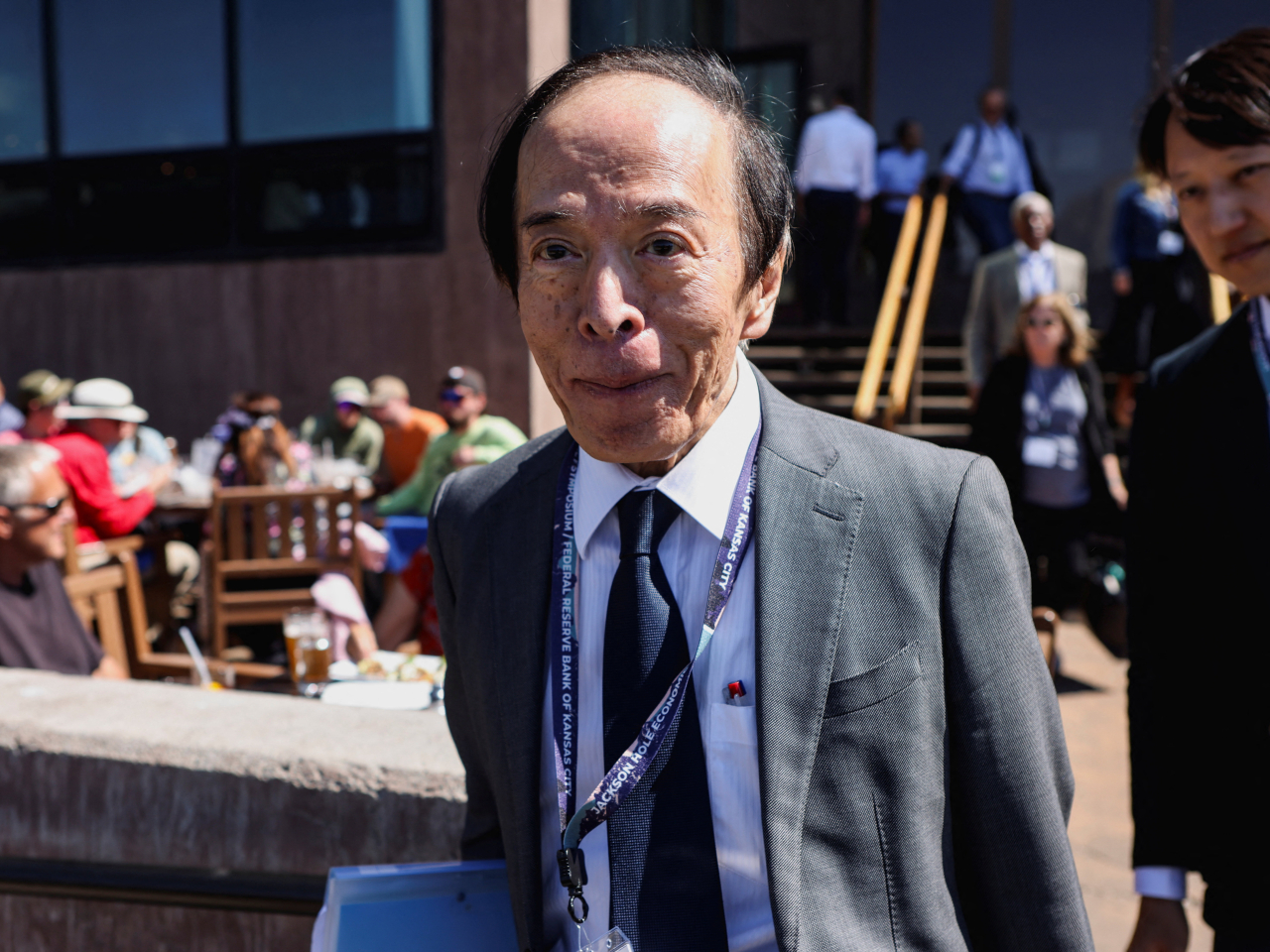Bank of Japan Governor Kazuo Ueda on Saturday said wage hikes are spreading beyond large firms and likely to keep accelerating due to a tightening job market, signalling his optimism that conditions for another interest rate hike were falling into place.
The remarks are likely to reinforce market expectations that the central bank will resume a rate hike cycle, which was put on pause due to concern over the fallout from US tariffs on the export-reliant economy, later this year.
Despite Japan's dwindling working-age population, wage growth remained stagnant for decades due to "entrenched deflationary expectations" that discouraged companies from raising prices and pay, Ueda said at a panel held on Saturday during the Federal Reserve's annual conference in Jackson Hole, Wyoming.
Now, wages are rising and labour shortages have become "one of our most pressing economic issues," as global inflation caused by the Covid-19 pandemic served as an external shock that broke Japan out of a deflationary equilibrium, he said.
"Notably, wage growth is spreading from large enterprises to small and medium enterprises," Ueda said.
"Barring a major negative demand shock, the labour market is expected to remain tight and continue to exert upward pressure on wages," he said.
Ueda spoke as part of a panel including Bank of England Governor Andrew Bailey and European Central Bank President Christine Lagarde addressing labour market challenges developing in their economies.
Japan has seen three straight years of high wage increases in annual spring wage negotiations between companies and unions.
Labour mobility has also risen from historically low levels as the younger generation in particular searches for better-paying jobs, forcing companies to increase pay as they compete for workers, Ueda said.
"In sum, demographic shifts that began in the 1980s are now producing acute labour shortages and persistent upward pressure on wages," Ueda said.
"They are also driving significant adjustments on the supply side of the economy - through higher participation, increased mobility, and capital-labour substitution," he said.
Such forces will complicate the relationship between labour market conditions, wages and prices, he added.
"We will continue to monitor these developments closely and incorporate our assessment of evolving supply-side conditions into the conduct of monetary policy," Ueda said.
After exiting a massive, decade-long stimulus last year, the BOJ raised interest rates to 0.5 percent in January on the view Japan was on the cusp of durably achieving its two percent inflation target.
The BOJ kept rates steady in July but revised up its inflation forecasts and offered a less gloomy outlook on the economy, keeping alive market expectations for a rate hike this year.
While consumer inflation has exceeded the BOJ's target for well over three years, Ueda has vowed to go slow in hiking rates as underlying inflation - or price rises driven by domestic demand - remains short of two percent.
But stubbornly high food inflation and the prospects of sustained wage growth have led some BOJ board members to warn of second-round price effects that could warrant another rate hike, a summary of the bank's July meeting showed. (Reuters)





